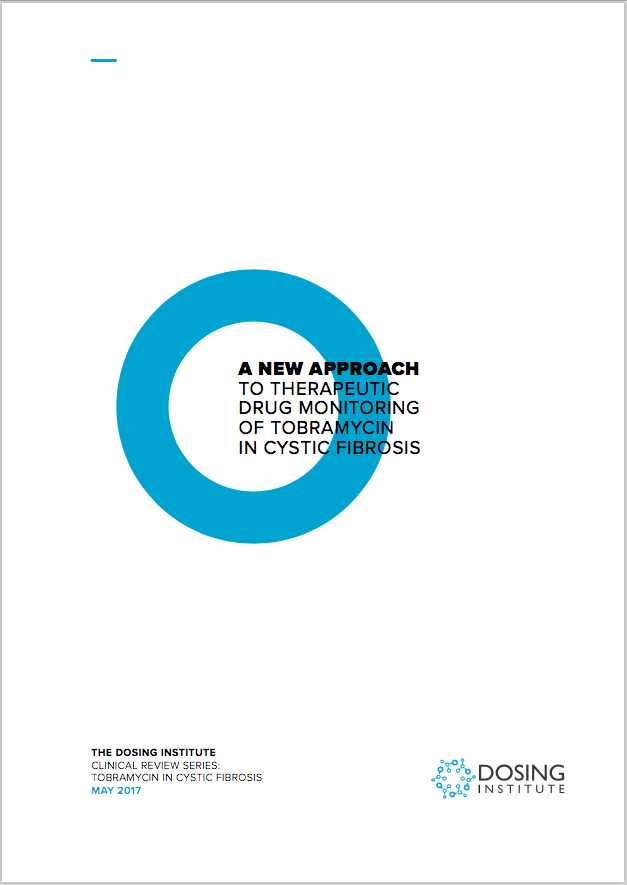A New Approach to Therapeutic Drug Monitoring of Tobramycin in Cystic Fibrosis

INTRODUCTION
Intravenous (IV) tobramycin, an aminoglycoside antibiotic, is a standard treatment for Pseudomonas infection in patients with cystic fibrosis (CF). However, drug exposure must be maintained within a narrow therapeutic range. If the dose is too high, there is an increased risk of adverse events, such as nephrotoxicity and ototoxicity. If the dose is too low, there is an increased risk of therapeutic failure, antibiotic resistance and poor patient outcomes. As a result, therapeutic drug monitoring (TDM) – measurement of drug concentrations in the blood at known times – of tobramycin is essential to enable appropriate dose individualization.
KEY CHALLENGES OF CONVENTIONAL METHODS ESTIMATING AUC FOR TOBRAMYCIN
Dose individualization of tobramycin is usually performed by taking two blood samples at fixed time points (relative to dose administration) and interpolating these into an estimation formula. This conventional method for estimating tobramycin area under the curve (AUC) – the actual body exposure to a drug after administration of a dose – is associated with a number of practical challenges, including difficulties surrounding drawing two blood samples, where patients often fail to present for their second blood test at the proposed time.
CONCLUSION
In this study, DoseMeRx, a Bayesian dose individualization platform, is shown to be more accurate at estimating AUC than the conventional two-sample method while requiring only one blood sample and allowing the collection of this sample at almost any patient-preferred time.
Latest Reviews:
- A New Approach for TDM of Tobramycin in CF. May 2017.
About The Clinical Review Series:
The clinical review series is scientific research presented for a mixed audience of clinicians, administrators, and students. We aim to present research clearly in the form of clinical whitepapers and reviews, aimed at a mixed audience.
If you’ve got a particular research question related to precision medicine that you’re interested in having answered, why not get in touch? We’re always interested in building our collaboration further.

